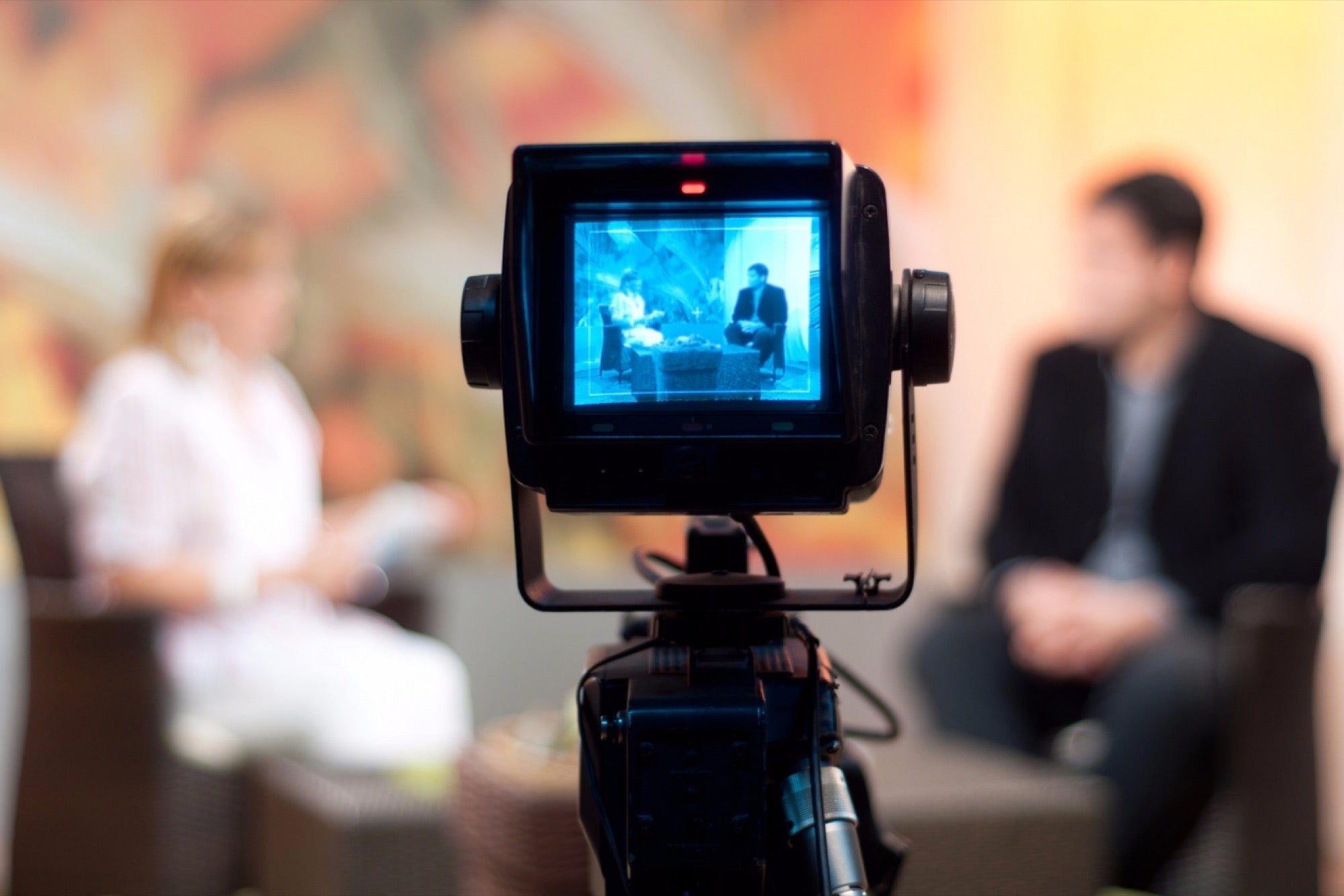Five Pointers for Your Televised Appearances Mastering the TV interview means keeping it simple. Multiple award-winning journalist Octavia Nasr gives her tips.
By Octavia Nasr •
Opinions expressed by Entrepreneur contributors are their own.
You're reading Entrepreneur Middle East, an international franchise of Entrepreneur Media.

Granting TV interviews is not a matter of choice anymore. In the age of 24-hour specialized media outlets and sleepless, borderless, limitless, consumer-filled social networks, brands and their leaders are in a constant race to remain relevant and engaging every second of the day. Thus, it is becoming essential for executives and professionals, in their quest to promote and market their businesses, to be pro-active and not only accept TV interview requests but also seek them.
Whether you feel excited, shy or fearful about being interviewed on camera, it is important to be comfortable. To achieve that, my advice is always to keep it simple! With a little effort and homework, you can deliver a stellar performance. Here are some tips to prepare for your interview, ace it, and have fun in the process.
1. Content Verbalize your message and break it down to a simple outline.
Having a plan helps you stay focused and on-message. It takes the guessing game out of your answers and keeps you on track with the most important information shared first. This is your safety net. You can answer the questions anyway you like; but having written an outline down beforehand will organize your thoughts to be better prepared for anything that will come your way.
Method
- State your main point in one complete sentence.
- Summarize who you are and how you plan to achieve your goal.
- List five talking points about your efforts in order of importance. Go through them in the order you have set out. Depending on time, the least important of them will get eliminated naturally.
- Have a clear conclusion highlighting what you would like to achieve and projecting to the future.
2. Appearance Dress the part but don't forget to be yourself.
I always advise clients to prepare ahead of time what look they would like to have. If a hat is part of your personae, keep it during the interview. Same goes for any special style of clothing such as jeans, glasses, vests, rolled up sleeves… Style your hair away from your face to avoid shadows.
Method
- Don't wear a suit to an interview if you are not used to it. In the same token, don't wear jeans and a turtleneck just because you think it'll project a cool image. Stay true to yourself.
- Don't wear loose and dangly jewelry. They will distract away from you and your valuable information and they can cause a noise nightmare to the crew and ruin your interview.
- Keep the wardrobe simple by sticking to solid colors. Stay away from large patterns or stripes. Avoid busy accessories. My personal favorite TV color is red and the darker shades of grey. Except when Chroma Key is used, blue works very well on camera as well as green. White is the camera's enemy. Avoid it altogether if you can.
- Most broadcasters will have makeup artists on location, but don't take a chance. Make sure you (women) have your regular makeup on and make sure your skin (men and women) is not oily or shiny during the interview. Don't rely on others to tell you how you look, check a mirror or your camera phone to see what the professional camera is seeing. Make adjustments as necessary.
 3. Composure Be calm and be yourself.
3. Composure Be calm and be yourself.
Calm yourself down by taking several deep breaths before the interview to avoid being fidgety and nervous-looking.
Method
- Tell yourself that you will have a good time chatting with the interviewer.
- Tell yourself that you are here because you have something interesting to share.
- Remind yourself that you know your topic well and you will ace this interview by just enjoying it and being yourself.
4. Body Language & the Image You Project
This determines how the audience receives you and whether or not more interview requests will follow.
Method
- Gesture as you would in your normal life but if you are behind a desk, keep your hands on the desk most of the time. Don't let them cover your face and overshadow your facial expression. Keep your hands off your face and hair. Do not start gesturing just to be more interesting.
- Get ready for all situations: Sitting, standing, outdoor, indoor, live or remote interviewer.
- Sit up in a nice comfortable position. No slouching, no swaying or rocking. Stay still, projecting an image of confidence and calm.
- You might be asked something that makes you uncomfortable. Prepare yourself ahead of time. If you do expect "tough" or "trick" questions, put on a poker face ahead of every question with a neutral gaze into the interviewer's eyes. Allow your face to regain life as soon as that split second of uncertainty is over and you know the question is safe.
- Keep your eyes on the interviewer. Don't move them around; don't look away, down or up. Don't look at the camera unless you're asked to. In this case, keep your eyes on the camera lens as if it is the interviewer.
- Putting on a kind a smile makes you look down to earth and friendly. Smile kindly, as long as it is not inappropriate.
 5. General Guidelines
5. General Guidelines
- Use the bathroom before the interview
- Keep a glass of water handy; but drink only in an emergency.
- Always keep your mouth one second behind your thoughts. A good rule of thumb? Think first; speak last.
- Even if something is bothering you, pretend life is great for the duration of the interview. During the interview, worry only about the interview.
- Have fun and show it.
For non-professional broadcasters, appearing on camera can be a dream come true or a nightmare. While some of the above tips might be unattainable at first try, they are definitely achievable with training and experience. First impressions are of prime importance in an age where the attention span is measured in seconds- take your televised opportunities in hand and really benefit from the exposure.













